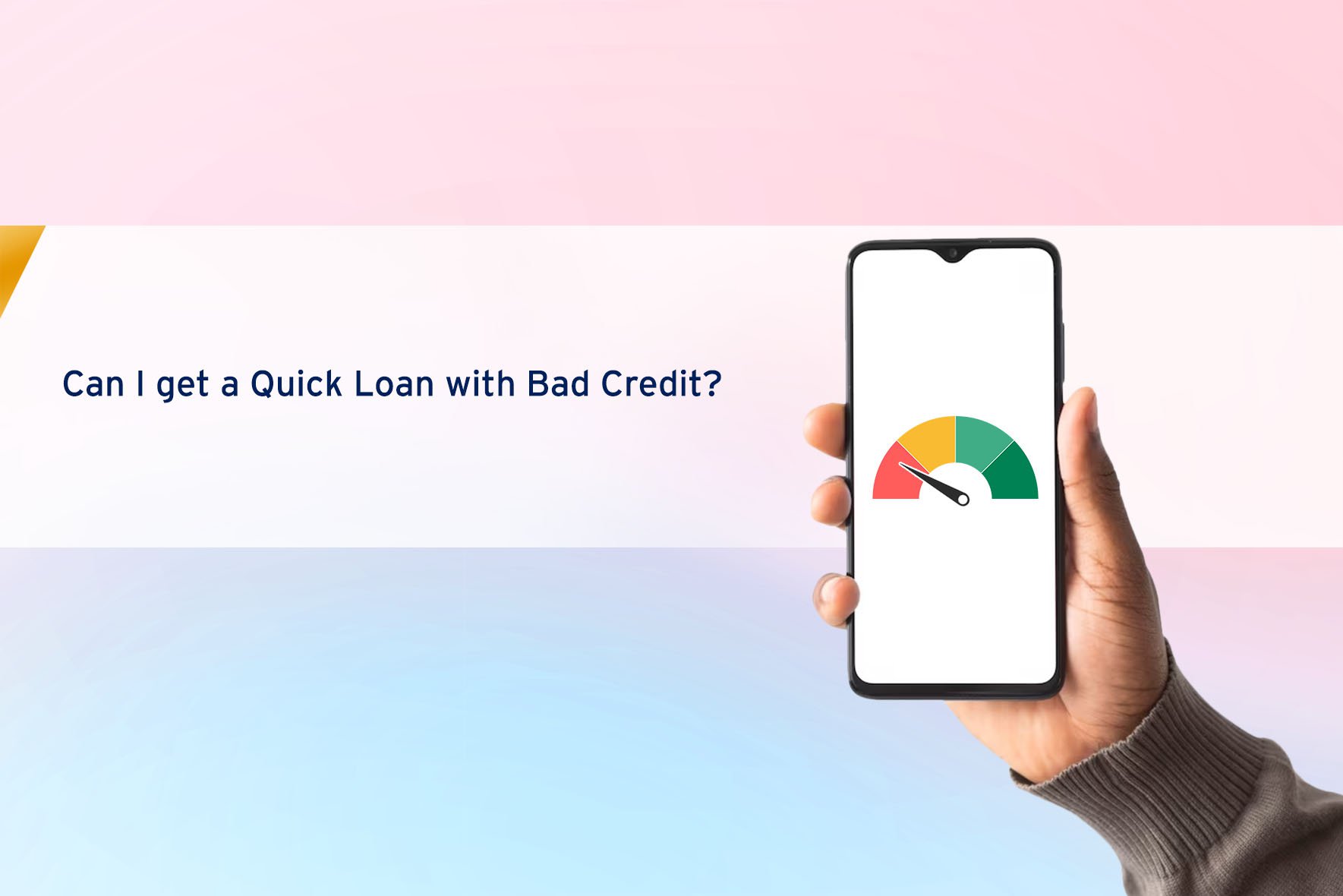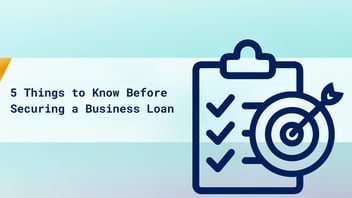
Can I get a Quick Loan with Bad Credit?
Author Taiwo Temitope-Adesope
At some point, whether you're a salary earner or a business owner, you may need a financial bailout. But what if you have bad credit? Can you still get a quick loan?
A quick loan is a type of loan designed for fast approval and disbursement. These loans, often available online or through mobile apps, can help cover unexpected expenses, consolidate debt, or fund major purchases. However, they typically come with shorter repayment terms and higher interest rates.
Features of a Quick Loan
Quick loans are designed for convenience but come with certain conditions.
Here are some key features:
- Fast Approval: Many quick loans are approved within minutes, making them ideal for urgent financial needs.
- Smaller Loan Amounts: Lenders typically offer between ₦5,000 and ₦5,000,000, depending on the provider and your creditworthiness.
- Online & Mobile Accessibility: You can apply through websites or mobile apps, avoiding lengthy bank visits.
- Higher Interest Rates: Quick loans usually come with higher interest rates compared to traditional bank loans.
- Short Repayment Periods: Repayment terms typically range from 3 to 12 months, so ensure you can repay on time.
How to Get a Quick Loan with Bad Credit
While bad credit can make borrowing more difficult, it’s not impossible. Here are steps to improve your chances:
1. Check Your Credit Score
Start by reviewing your credit report to identify errors or areas for improvement. Knowing your score helps you find lenders willing to work with you. You can check your credit score for free on nairaCompare!
2. Explore Alternative Lenders
Traditional banks may reject applicants with bad credit, but alternative lenders like fintech platforms, credit unions, or peer-to-peer lending services may be more flexible.
3. Consider Secured Loans
Secured loans require collateral, such as a car or property, which can improve your chances of approval. However, failure to repay may result in losing your assets.
4. Look into Payday & Short-Term Loans (With Caution)
Some lenders offer payday or short-term loans for those with bad credit, but they often come with high fees. Always read the terms carefully to avoid debt traps.
5. Improve Your Creditworthiness
To increase your chances of loan approval and better rates:
-
Make timely payments on existing debts.
-
Reduce your debt-to-income ratio.
-
Avoid applying for multiple loans at once.
6. Beware of Predatory Lenders
Some lenders take advantage of desperate borrowers by charging excessive fees or hidden charges. Always research lenders and read reviews before committing.
Top 5 Online Lenders for Quick Loans with Bad Credit in Nigeria
If you need a quick loan despite bad credit, these lenders may offer suitable options:
1. Renmoney
-
Loan Range: ₦50,000 - ₦6,000,000
-
Interest Rate: 2.6% - 5.3% monthly
-
Tenure: Up to 24 months
2. KiaKia
-
Loan Type: Peer-to-peer & direct lending
-
Loan Range: ₦10,000 - ₦200,000 (higher for repeat customers)
-
Interest Rate: 3.5% - 24% APR
3. Page Financials
-
Loan Range: ₦200,000 - ₦5,000,000
-
Interest Rate: 5% monthly
-
Tenure: Up to 12 months
4. QuickCheck
-
Loan Range: ₦1,500 - ₦500,000
-
Interest Rate: 10% monthly
-
Tenure: Up to 6 months
5. FairMoney
-
Loan Range: ₦1,500 - ₦500,000
-
Interest Rate: Varies
-
Tenure: Up to 3 months
Tips for Maintaining a Good Credit Score
Maintaining a good credit score is key to financial stability and getting better loan offers. Here’s how to improve and protect your creditworthiness:
- Pay Bills on Time: Late payments can negatively impact your credit score. Set up reminders or automate payments.
- Avoid Excessive Loan Applications: Every loan application results in a credit inquiry, which can temporarily lower your score.
- Maintain a Credit Mix: Having a mix of credit accounts (e.g., loans, mortgages) demonstrates financial responsibility.
- Review Your Credit Report Regularly: Nigerians are entitled to one free credit report annually from registered credit bureaus like CRC Credit Bureau or Credit Registry.
- Keep Old Credit Accounts Open: A long credit history helps maintain a strong score.
- Manage Debt Wisely: Keep credit utilization low and avoid excessive borrowing.
- Seek Professional Help If Needed: If struggling with debt, consider financial counseling for guidance.
Check your credit score now on nairaCompare to know where you stand!
Final Thoughts
A quick loan can be a lifesaver in emergencies, even with bad credit. However, it’s important to borrow responsibly, compare lenders, and take steps to improve your financial health.
Want more financial tips? Sign up on nairaCompare to compare loan offers, check your credit score, and make smarter financial decisions!
Your credit score shapes your financial future—start improving it today!
About Author

Taiwo Temitope-Adesope
Taiwo is a passionate storyteller and strategist dedicated to empowering women and crafting compelling narratives. A First-Class graduate in Mass Communication from Covenant University, she specializes in writing, public relations, and digital marketing. As a Content Manager at Suretree, she drove a 50% increase in web traffic through SEO and boosted website engagement by 60% in just four months. Her leadership experience includes serving as Public Relations Officer for the Covenant University Student Council and contributing to impactful volunteer initiatives. With expertise in strategic thinking and business acumen, Taiwo continues to create stories that inspire confidence and imagination.









